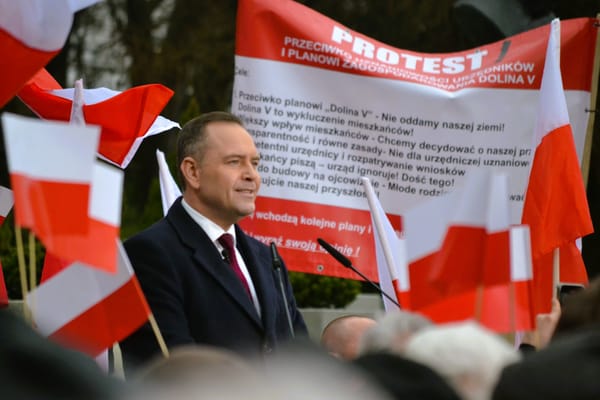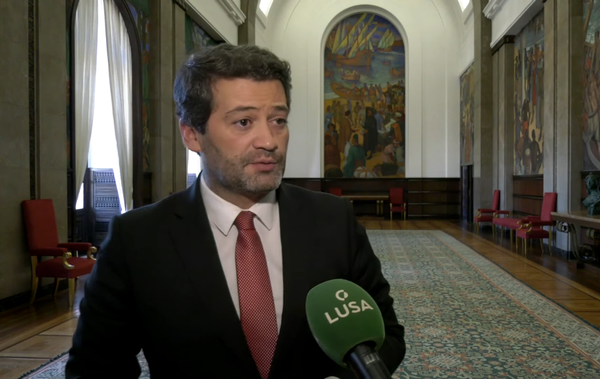Warsaw rises: Poles to protest EU’s Migration Pact and Mercosur deal

Warsaw — On October 11, the streets of Poland’s capital will once again fill with citizens defending their nation’s sovereignty. The Law and Justice Party (PiS) has called for a nationwide protest against two of the most controversial European Union projects in years — the Migration Pact and the Mercosur trade agreement — both viewed as dangerous assaults on Poland’s independence, farmers, and future.
At the heart of the protest is Jarosław Kaczyński, PiS leader and former deputy prime minister, who issued a fiery call to action during a recent address in Warsaw.
“This government harms Poland every day!” Kaczyński declared. “The Migration Pact is a real danger; the agreement with the Mercosur countries will destroy our agriculture. We cannot stand by as our sovereignty is dismantled piece by piece.”
His warning struck a chord with Poles who feel betrayed by the ruling coalition’s growing alignment with Brussels’ federalist agenda. Kaczyński went further, accusing the government of abusing the judicial system to silence the opposition:
“The manual control of judicial panels by politicians from the current coalition means impunity for their own and repression of the opposition.”
For Kaczyński and his supporters, the issue is no longer just about specific policies — it’s about who governs Poland: the Polish people or unelected Eurocrats in Brussels.
The EU Migration Pact: a threat to sovereignty
The EU Migration Pact effectively forces member states to accept migrant relocation quotas — or pay steep financial penalties for refusing.
For Poland, this policy is unacceptable. After years of defending its borders against illegal migration, Poles see the pact as a betrayal of the principle of national self-determination. Critics warn it will erase national control over migration policy, turning every EU country into a “shared responsibility zone” dictated from Brussels.
The ruling coalition, led by Donald Tusk, has signaled a willingness to comply with the pact — sparking outrage among conservatives and local governments who fear a repeat of the migration chaos that engulfed Western Europe.
Mercosur: A betrayal of Polish farmers
Equally controversial is the Mercosur trade deal, which would open the EU market to cheap agricultural imports from South America. PiS and Poland’s farmers’ unions have condemned the agreement as a “death sentence for Polish agriculture.”
Farmers warn that imports from Brazil, Argentina, and Paraguay — often produced under looser environmental and labor standards — would undercut Polish farmers and devastate rural communities.
The deal, pushed by European Commission officials and supported by left-wing governments, is viewed as another example of the EU prioritizing globalist economics over national stability and food security.
A broader struggle for Europe’s future
The planned Warsaw rally is not an isolated event. Across Europe, sovereigntist and conservative movements are gaining ground — from Italy to Hungary, Slovakia, and France — united in their opposition to open-border policies, bureaucratic overreach, and cultural homogenization.
For many Poles, this is about more than trade or migration. It’s about defending the foundations of the European civilization they love — faith, family, and freedom.
Kaczyński’s message echoes a growing sentiment across the continent: Europe must choose between submission to global governance or a return to the Europe of nations — free, sovereign, and proud.
Ten rząd szkodzi Polsce każdego dnia!
— Jarosław Kaczyński (@OficjalnyJK) October 7, 2025
Pakt migracyjny to realne niebezpieczeństwo, umowa z krajami Mercosur to zniszczenie rolnictwa, a ręczne sterowanie składami sędziowskimi przez polityków obecnej koalicji to bezkarność dla swoich i represje wobec opozycji. Na każdym kroku w… pic.twitter.com/8NH2p4WLQu
A new chapter of conservative resistance
As demonstrators prepare to gather in Castle Square, the protest in Warsaw may prove to be a defining moment in Poland’s political life — a test of whether conservative forces can rekindle the spirit of national unity that once resisted communist domination.
Just as the Solidarity movement in the 1980s stood against tyranny, today’s marchers see themselves standing against a new kind of coercion — the technocratic despotism of the EU elite.
In Warsaw, thousands are expected to wave the Polish flag and carry banners reading “Polska dla Polaków” — “Poland for the Poles.” It will be, as organizers put it, a march not just for policy, but for principle — for sovereignty, for the family, and for the right of every nation to determine its own destiny.





